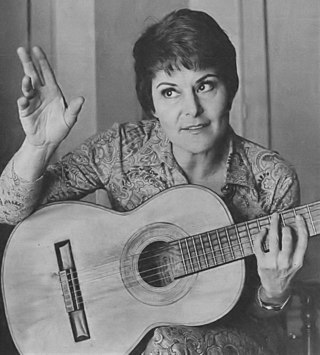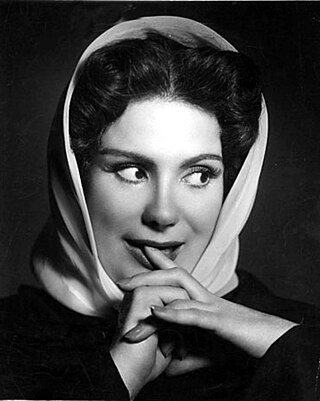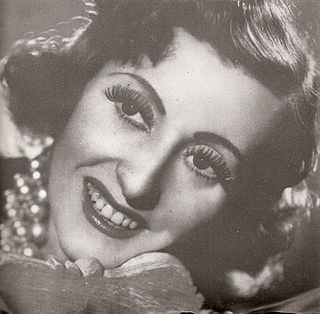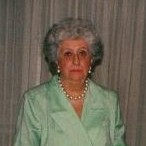Related Research Articles
The term federalist describes several political beliefs around the world. It may also refer to the concept of parties, whose members or supporters called themselves Federalists.

Buenos Aires, officially the Autonomous City of Buenos Aires, is the capital and primate city of Argentina. The city is located on the western shore of the Río de la Plata, on South America's southeastern coast. "Buenos Aires" is Spanish for "fair winds" or "good airs". Buenos Aires is classified as an Alpha global city, according to the Globalization and World Cities Research Network (GaWC) 2020 ranking.

Susana Natividad Rinaldi was born on December 25, 1935 in Buenos Aires, Argentina. She is an Argentine tango singer better known as "La Tana." Her recognition is notable in various films, television appearances, theatrical performances, and in the music industry.
The 1921 South American Championship was the fifth continental championship for nations in South America. It was held in Buenos Aires, Argentina, from 2 to 30 October 1921.
At the national level, Argentina elects a head of state and a legislature. The franchise extends to all citizens aged 16 and over, and voting is mandatory for all those who are between 18 and 70 years of age.

Angélica Gorodischer was an Argentine writer who was known for her short stories, which belong to a wide variety of genres, including science-fiction, fantasy, crime and stories with a feminist perspective.

Eladia Blázquez was an Argentine tango singer and composer. Born in Gerli, Buenos Aires Province, El corazón al sur is considered her most popular tango.

Mario Ernesto O'Donnell Ure, known professionally as "Pacho O'Donnell", is an Argentine writer, politician, historian and physician who specializes in psychoanalysis.

María Elena Walsh was an Argentine poet, novelist, musician, playwright, writer and composer, mainly known for her songs and books for children. Her work includes many of the most popular children's books and songs of all time in her home country.

Raúl Soldi was an Argentine painter and production designer whose work treated various subjects, including landscapes, portraits, the theater and the circus, and nature. His theatrical figures are renowned for their melancholy appearance. He also illustrated poetry books.

Alejandra Boero was an Argentine theater actress and director born in Buenos Aires.

Juan Gelman was an Argentine poet. He published more than twenty books of poetry between 1956 and his death in early 2014. He was a naturalized citizen of Mexico, country where he arrived as a political exile of the Military Junta.

Enrique Domingo Cadícamo was a prolific Argentine tango lyricist, poet and novelist. From an initial Symbolist bent, he developed a distinctive, lunfardo-rich style from an early age, and by 1925 he had his first piece, Pompas de jabón, sung by Carlos Gardel. Other notable compositions include Madame Ivonne, Che, papusa, oí, Anclado en París, Muñeca brava, Al Mundo le falta un Tornillo, Pa' que bailen los muchachos and Los mareados, originally titled Los dopados, about a couple that vows to get drunk after realizing their love is over.

Marina Esther Traveso, known by her stage name Niní Marshall, was an Argentine humorist, comic actress and screenwriter; nicknamed The Chaplin with a skirt and The Lady of Humour.

Luisa Vehil was an Uruguayan theater and movie actress who had a notable career in Argentina. She was an iconic figure in the Argentine theatre scene.
Robert J. Cox also known as Bob Cox, is a British journalist who became editor and publisher of the Buenos Aires Herald, an English-language daily newspaper in Argentina. Cox became famous for his criticism of the military dictatorship (1976–1983). He was detained and jailed, then released after a day. During this time, he received multiple threats against his family. When one of the threats included very detailed information about his then 13-year-old son, he desisted from his work; the family left Argentina in 1979. He moved to Charleston, South Carolina, where he became an editor of The Post and Courier, owned by the same publishing company that owned the Buenos Aires Herald. In 2005, the Buenos Aires legislature recognized Cox for his valor during the dictatorship.

The French blockade of the Río de la Plata was a two-year-long naval blockade imposed by France on the Argentine Confederation ruled by Juan Manuel de Rosas. It closed Buenos Aires to naval commerce. It was imposed in 1838 to support the Peru–Bolivian Confederation in the War of the Confederation, but continued after the end of the war. France did not land ground forces, but instead took advantage of the Uruguayan Civil War and the Argentine Civil Wars, supporting Fructuoso Rivera and Juan Antonio Lavalleja against Manuel Oribe and Rosas.
Dutch Argentines are Argentine citizens of full or partial Dutch ancestry or people who emigrated from the Netherlands and reside in Argentina. Dutch immigration to Argentina has been one of many migration flows from Europe in that country, although it has not been as numerous as in other cases. However, Argentina received a large contingent of Dutch since 1825. The largest community is in the city of Tres Arroyos in the south of the province of Buenos Aires.

Tania was the stage name of Spanish tango singer Ana Luciano Divis. She was one of the most significant tango interpreters of her era. She was honored as an Illustrious Citizen of the City of Buenos Aires and a Personality of Argentine Culture, as well as receiving the Order of Isabella the Catholic from Juan Carlos I of Spain.

María Hortensia Lacau was an Argentine pedagogue, writer, essayist, poet, and teacher. Dedicated to teaching and pedagogy, she was a teacher at the secondary, tertiary and university levels. She taught at Colegio Nacional de Buenos Aires and Escuela Superior de Comercio Carlos Pellegrini among other institutions. Lacau gave the chaired "Commentary on Texts" in the entrance courses of the Faculty of Philosophy and Letters of the University of Buenos Aires. She is the co-author of the "Lacau-Rosetti" Spanish Manuals with which several generations of Argentines studied Spanish and literature. She was a recipient of the Konex Award and the Illustrious Citizen of Buenos Aires award.
References
- 1 2 "Distinciones y reconocimientos de Buenos Aires" [Buenos Aires awards and recognitions] (in Spanish). Buenos Aires. October 21, 2014. Retrieved October 29, 2015.